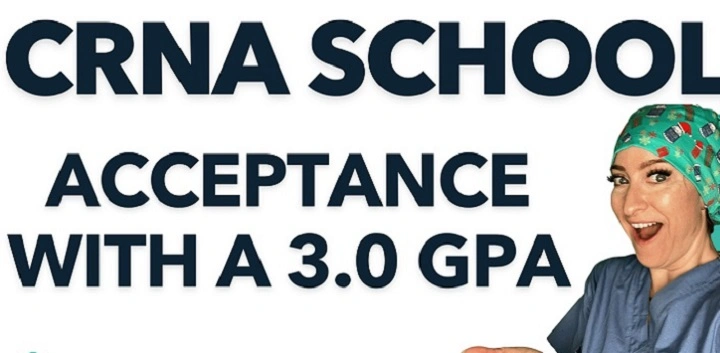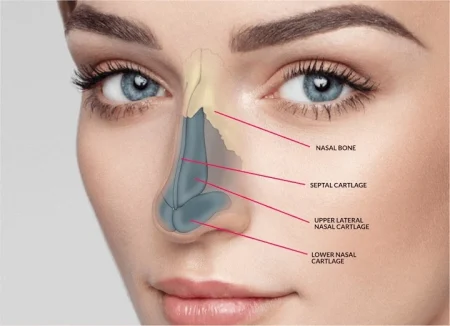It is your dream to become a CRNA (Certified Registered Nurse Anesthetist), then the very first thing you need to remember is your GPA. It is common for most nursing students to have a dream of getting into CRNA school but are unsure whether their GPA will be approved or not. GPA is Grade Point Average, and it is a score which indicates how well you did in your classes. One of the most important pieces of information admissions committees use for CRNA programs is GPA. In this article, we are going to cover what GPA you should have in order to go to CRNA school, why GPA matters, what you do if your GPA is not stellar, and advice on how to make your application stand out.
What Is a CRNA?

A CRNA is an anesthesia nurse who administers anesthesia to surgery and other patients. They are advanced practice nurses with decades of education and experience. It’s a very rewarding career since you’re performing this life-safety role, and the compensation is great. It’s one of the most competitive nursing career paths, though.
As CRNA school is competitive, schools desire students that show academic potential, especially in science and nursing courses. This is why GPA is so important.
Why GPA is Important for CRNA School
CRNA school is tough. You have to learn tough subjects. Such as anatomy, physiology, pharmacology, and chemistry. You have to get through tough clinical rotations. The schools need to know that you will be able to handle this heavy course load. GPA is one of the ways they can guarantee it.
A high grade point average indicates that you are comprehensive, and consistent. It also indicates that you’re able to master challenging information. It ensures that the admissions committee has faith that you can perform well in their program.
If you have a low GPA, the school might worry that you won’t be prepared for the difficult classes. That doesn’t automatically rule you out but will be tougher, and you will have to make your application stronger in some other area.
What GPA Do You Need for CRNA School?
Most schools that offer CRNA will have a minimum GPA of 3.0 on a 4.0 scale. Ideally, you would want at least a “B” average. In reality, however, most accepted students are far above that.
Most accepted candidates usually will have a GPA of 3.4 to 3.7. Some institutions are even more competitive and close to expecting a 3.8 GPA.
The GPA can also be calculated based on:
- Your overall GPA (all classes you have ever taken)
- Your science GPA (anatomy, biology, chemistry, physiology, etc.)
- Your nursing GPA (just nursing classes)
Many schools in most cases will pay more attention to your science GPA because it is an indicator of whether or not you will be able to successfully navigate the science-heavy parts of the program.
What If My GPA Is Lower Than 3.0?
It’s hard to get into CRNA school with a GPA of 3.0 or worse, but it can be done. Some schools will take you if you’re excellent in other areas. For example:
- If you’ve had extensive experience in critical care nursing
- If you’ve received awesome GRE scores (if needed)
- If you’ve received awesome letters of recommendation
- If you’ve excelled in recent science courses (even if you’ve had a terrible overall GPA)
A few of the students with low GPAs have been admitted to CRNA school following good performance in other aspects.
Tips to Enhance Your GPA for CRNA School

In case your GPA is lower than you prefer it to be, the following are some actions that you may take:
- Re-taking courses: In case you received a bad grade in a science or nursing course, re-take the course. Schools will note the improvement.
- Take more science courses: Take a course like organic chemistry, pathophysiology, or advanced physiology to get A’s. This demonstrates that you are ready for science at the CRNA level.
- Do well at your MSN or BSN program: If you are finishing your degree, attempt to increase your GPA during the final semesters. All these small increases will add up.
- Get a study tutor or assistance: It is okay to seek help when the homework is difficult. Better grades today will open more doors tomorrow.
- Show recent improvement: If your recent GPA has not been good, show that you can now do better by doing an outstanding job on your most recent coursework. Schools love upward momentum.
Things Other Than GPA That Matter
GPA is very important, but it is not the sole consideration of CRNA schools. Although your GPA has not been high, you can be a good candidate by doing well in the areas listed below:
- Critical care experience: You require at least 1-2 years of ICU (Intensive Care Unit) experience. The better, the greater your prospects.
- Certifications: Having certifications of CCRN (Critical Care Registered Nurse) would improve your candidacy.
- GRE scores: Some programs will require you to take the GRE. A good score may offset a low GPA.
- Letters of recommendation: Strong letters from your supervisors or professors can have a significant impact.
- Personal statement and interview: Demonstrate your passion, dedication, and professionalism.
Success Tips for Getting Into CRNA School
- Plan ahead. Take GPA and experience into account while you are still in nursing school.
- Take priority sciences classes. Having a solid science GPA will take you far even if your overall GPA isn’t as solid.
- Ensure ICU exposure early on. This is typically not negotiable with CRNA programs.
- Build positive relationships with professors and managers so that they can write a good letter of recommendation for you.
- Be prepared to defend your GPA. If you had a bad semester due to something, explain how you pushed through it and how you’re a better person for it.
Frequently Asked Questions
What is too low for CRNA school GPA?
Most schools require a minimum of 3.0. Anything lower than that will be incredibly hard, but not necessarily impossible.
Are GPA or science GPA more important to CRNA programs?
Science GPA is more important since the program is highly science-oriented.
Am I likely to be accepted into CRNA school with a 3.2 GPA?
Yes, there have been students who were accepted with around a GPA of 3.2, if they have excellent ICU experience and good letters of recommendation.
Does work experience compensate for low GPA?
Yes. ICU experience, certifications, and skills are a definite advantage.
Do I need to take additional courses if I have a low GPA?
Yes. Passing and completing additional science courses shows that you are able to do more challenging work.
It is competitive to get into CRNA school, and GPA does come into play with acceptance. Most schools require a minimum 3.0 GPA, and most students accepted have GPAs between 3.4 and 3.7. GPA isn’t all it takes. You can still boost your chances if you have a lower GPA but tons of ICU experience, certification, and proving your capability of success with upper-level sciences.
The most important thing is not to give up. Most successful CRNAs once cared about their GPA, but with persistence and hard work, they made it. If becoming a CRNA is your aspiration, improve your GPA if possible, increase your experience, and apply confidently.








